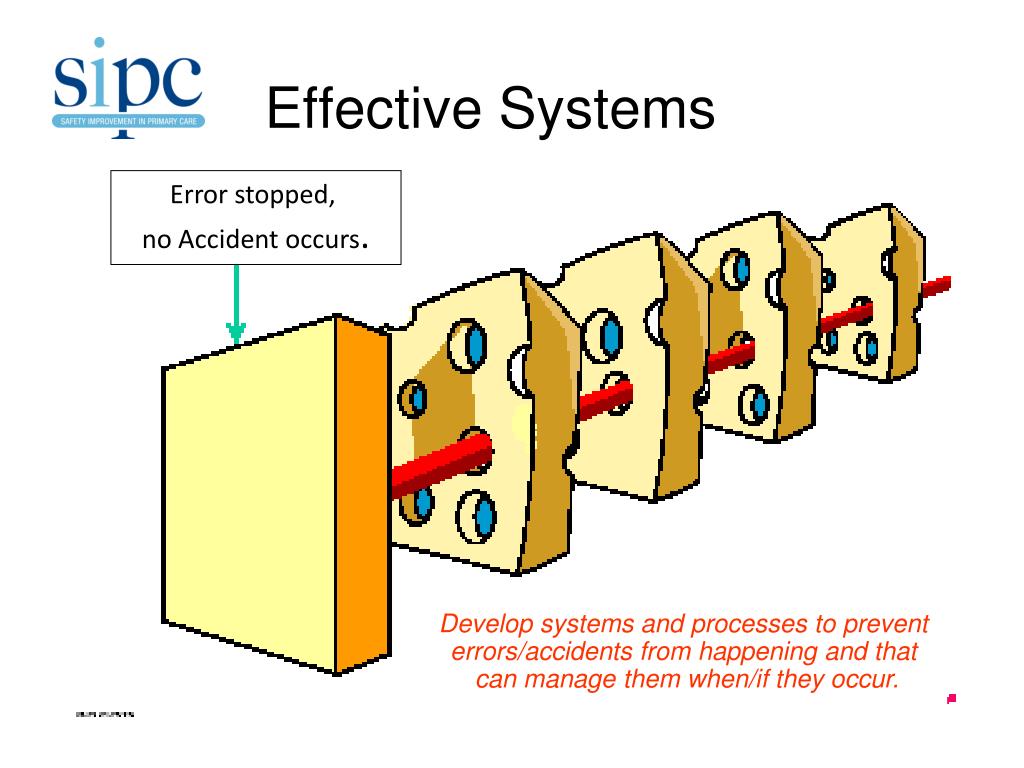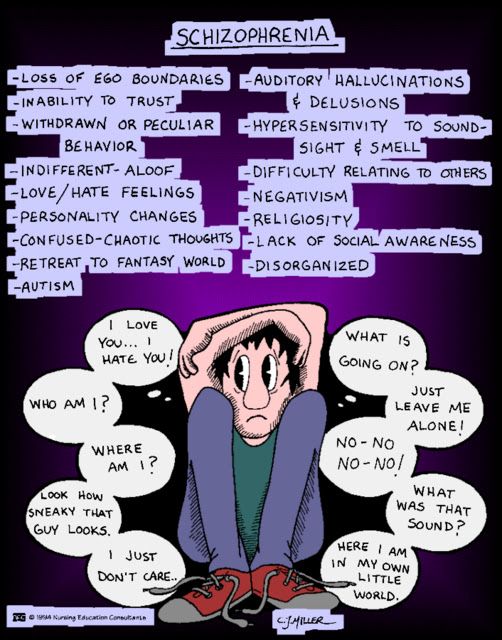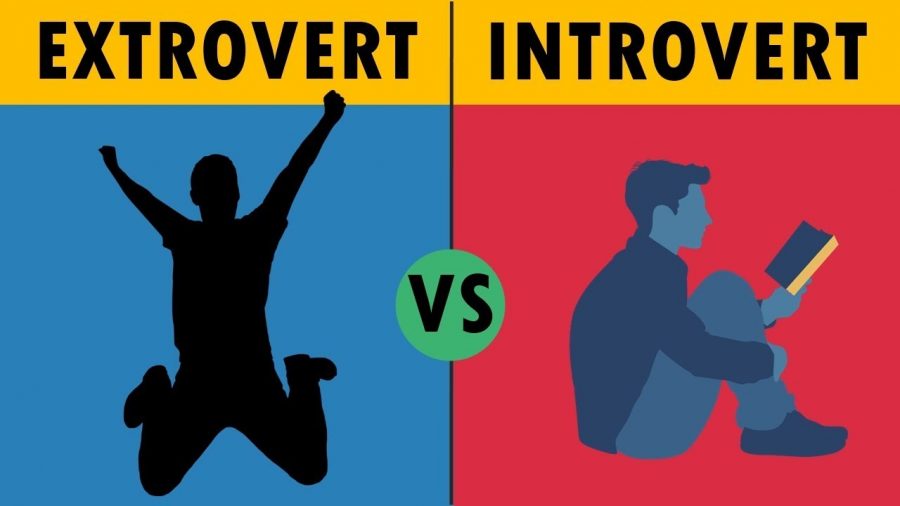How to stop delusions
Delusional Disorder
Treatments
COMBINATION PSYCHOTHERAPY AND ANTIPSYCHOTIC MEDICATION
Treatment Summary: Delusional disorder is difficult to treat because of the client's suspicious and delusional beliefs. However, research indicates that psychotherapy in conjunction with antipsychotic medication is the most effective form of treatment. The treatment of psychotherapy is used to explore the possible biological problems and to decrease the delusional symptoms. Additionally, it helps the client to work toward reality. It is imperative during psychotherapy for the therapist to join with the client. The therapist should express empathy, support, and trust toward the client. Once a strong relationship has been established, the therapist can begin to focus on increasing the client's self-confidence, and slowly challenge the delusional thought process. This is done best through cognitive-behavioral therapy and other solution-oriented therapies. Research indicates that antipsychotic medications' effectiveness is marginal.
About one-third of patients respond somewhat positively, one-third show little change, and one-third worsen or do not take the medication as prescribed. Nevertheless, through antipsychotic medications such as Haldol and Risperidone, the agitation that is often present with the disorder can be subsided. Additionally, the medications can block the inappropriate behaviors associated with the delusional type.
- Reference: Psych Central. (1998-2006). Retrieved from http://psychcentral.com/disorders/sx11t.htm Encyclopedia of Mental Disorders. Delusional Disorder. (2007-2010). Retrieved from http://www.minddisorders.com/Br-Del/Delusional-disorder.html
- Submitter: N/A
Cognitive Behavioral Therapy
Treatment Summary: Cognitive Behavioral Therapy is one of the research-proven methods for treating patients diagnosed with any of the subtypes of Delusional Disorder. The first step involves the therapist working to establish a strong therapeutic alliance with the patient. Because most patients who experience delusions have experienced the disbelief of medical providers and close friends and family, they are naturally suspicious of anyone who attempts to help them. They fear that they will once again not be believed. In the first stage of working with a patient diagnosed with Delusional Disorder then, it is advised to not try to challenge the reality of the delusion. Rather, therapists are encouraged to empathize with the patient in regards to the impact the symptoms have on their everyday life (Salvatore et al., 2012). This first stage of therapy can be extensive because the "paranoia" that accompanies not being believed about something that seems so real to the patient is pervasive and usually well-entrenched by the time they seek treatment. The next stage of therapy involves challenging the patient in regards to their belief in their delusion. Many patients who are diagnosed with Delusional Disorder report that the delusions manifest themselves during times of stress and anxiety and are accompanied by feelings of vulnerability.
Because most patients who experience delusions have experienced the disbelief of medical providers and close friends and family, they are naturally suspicious of anyone who attempts to help them. They fear that they will once again not be believed. In the first stage of working with a patient diagnosed with Delusional Disorder then, it is advised to not try to challenge the reality of the delusion. Rather, therapists are encouraged to empathize with the patient in regards to the impact the symptoms have on their everyday life (Salvatore et al., 2012). This first stage of therapy can be extensive because the "paranoia" that accompanies not being believed about something that seems so real to the patient is pervasive and usually well-entrenched by the time they seek treatment. The next stage of therapy involves challenging the patient in regards to their belief in their delusion. Many patients who are diagnosed with Delusional Disorder report that the delusions manifest themselves during times of stress and anxiety and are accompanied by feelings of vulnerability. Therefore, the delusion, in some ways, acts as a defense against perceived threats from the outside (Salvatore et al., 2012). Encouraging patients to engage in metacognition exercises where they deconstruct situations to identify their emotions and thoughts that might be triggering the delusions is thought to help them learn to challenge their views and thinking, particularly in stressful situations (O'Connor et al., 2007). The last stage of therapy involves helping the patient learn how to test reality so that delusions can be avoided in future situations. If metacognition has improved, patients are able to identify the emotions and the thinking that leads them to the delusional thoughts and feelings and stop the delusion from occurring in the first place.
Therefore, the delusion, in some ways, acts as a defense against perceived threats from the outside (Salvatore et al., 2012). Encouraging patients to engage in metacognition exercises where they deconstruct situations to identify their emotions and thoughts that might be triggering the delusions is thought to help them learn to challenge their views and thinking, particularly in stressful situations (O'Connor et al., 2007). The last stage of therapy involves helping the patient learn how to test reality so that delusions can be avoided in future situations. If metacognition has improved, patients are able to identify the emotions and the thinking that leads them to the delusional thoughts and feelings and stop the delusion from occurring in the first place.
- Reference: O'Connor, K., Stip, E., Pelissier, M., Aardema, F., Guay, S., Gaudette, G., Leblanc, V.(2007). Treating delusional disorder: A comparison of cognitive-behavioural therapy and attention placebo control.
 Canadian Journal of Psychiatry, (52)3, 182-190. http://publications.cpa-apc.org/media.php?mid=375 Salvatore, G., Russo, B., Russo, M., Popolo, R., & Dimaggio, G. (2012). Metacognition oriented therapy for psychosis: The case of a woman with delusional disorder and paranoid personality disorder. Journal of Psychotherapy Integration, (22)4, 314-329. doi: 10.1037/a0029577
Canadian Journal of Psychiatry, (52)3, 182-190. http://publications.cpa-apc.org/media.php?mid=375 Salvatore, G., Russo, B., Russo, M., Popolo, R., & Dimaggio, G. (2012). Metacognition oriented therapy for psychosis: The case of a woman with delusional disorder and paranoid personality disorder. Journal of Psychotherapy Integration, (22)4, 314-329. doi: 10.1037/a0029577 - Submitter: Jeanne Mallory
Worry Cognitive Behavioral Therapy (W-CBT)
Treatment Summary: Research indicates it is common for individuals diagnosed with delusional disorder to also have comorbid disorders such as anxiety. Grandiose and persecutory subtypes typically occur together in individuals who exhibit anxiety. Essentially, it's applying worry interventions with CBT. Worry interventions such as reviewing positive and negative beliefs about worrying, identifying triggers, learning relaxation techniques, and etc. to reduce worry and distress.
- Reference: Foster, C., Startup, H., Potts, L., & Freeman, D. (2009). A randomized controlled trial of a worry intervention for individuals with persistent persecutory delusions. Journal of Behavior Therapy and Experimental Psychiatry, 41, 45 - 51. doi: 10.1016/j.jbtep.2009.091
- Submitter: Lan Carter
Causes, Symptoms, Types & Treatment
Overview
What is delusional disorder?
Delusional disorder is a type of psychotic disorder. Its main symptom is the presence of one or more delusions.
A delusion is an unshakable belief in something that’s untrue. The belief isn’t a part of the person’s culture or subculture, and almost everyone else knows this belief to be false.
People with delusional disorder often experience non-bizarre delusions. Non-bizarre delusions involve situations that could possibly occur in real life, such as being followed, deceived or loved from a distance. These delusions usually involve the misinterpretation of perceptions or experiences. In reality, these situations are either untrue or are highly exaggerated.
These delusions usually involve the misinterpretation of perceptions or experiences. In reality, these situations are either untrue or are highly exaggerated.
Non-bizarre delusions are different from bizarre delusions, which include beliefs that are impossible in our reality, such as believing someone has removed an organ from your body without any physical evidence of the procedure.
People with delusional disorder often continue to socialize and function well, apart from the subject of their delusion. Generally, they don’t behave in an odd or unusual manner. This is unlike people with other psychotic disorders, who might also have delusions as a symptom. In some cases, however, people with delusional disorder might become so preoccupied with their delusions that their lives are disrupted.
What are the types of delusional disorder?
There are different types of delusional disorder, which are determined based on the main theme of the delusions the person experiences. The types of delusional disorder include:
The types of delusional disorder include:
- Erotomanic: People with this type of delusional disorder believe that another person, often someone important or famous, is in love with them. They may attempt to contact the person of the delusion and engage in stalking behavior.
- Grandiose: People with this type of delusional disorder have an overinflated sense of self-worth, power, knowledge or identity. They may believe they have a great talent or have made an important discovery.
- Jealous: People with this type of delusional disorder believe that their spouse or sexual partner is unfaithful without any concrete evidence.
- Persecutory: People with this type of delusional disorder believe someone or something is mistreating, spying on or attempting to harm them (or someone close to them). People with this type of delusional disorder may make repeated complaints to legal authorities.
- Somatic: People with this type of delusional disorder believe that they have a physical issue or medical problem, such as a parasite or a bad odor.

- Mixed: People with this type of delusional disorder have two or more of the types of delusions listed above.
What is the difference between delusional disorder and schizophrenia?
Schizophrenia is a spectrum (or range) of conditions that involve psychotic symptoms, which include:
- Disorganized speech or behavior.
- Negative symptoms (a decrease in emotion in a person’s facial expressions and motivation).
Delusional disorder is different from schizophrenia because there aren’t any other psychotic symptoms other than delusions.
In addition, in contrast to schizophrenia, delusional disorder is relatively rare, and daily functioning isn’t as impaired as it is in schizophrenia.
Who does delusional disorder affect?
Delusional disorder most often occurs in middle to late life, with the average age of onset being 40 years.
The persecutory and jealous types of delusional disorder are more common in people assigned male at birth (AMAB), and the erotomanic type is more common in people assigned female at birth (AFAB).
People who tend to be socially isolated are more likely to develop delusional disorder. These populations include:
- Immigrants who have language barriers.
- People who are deaf.
- People who are visually impaired.
- Elderly people.
How common is delusional disorder?
Although delusions might be a symptom of more common disorders, such as schizophrenia, delusional disorder itself is rather rare. Approximately 0.05% to 0.1% of the adult population has delusional disorder.
What is the most common type of delusional disorder?
The most common type of delusional disorder is the persecutory type — when someone believes others are out to harm them despite evidence to the contrary.
Symptoms and Causes
What are the signs and symptoms of delusional disorder?
The presence of delusions is the most obvious sign of delusional disorder, which vary based on the type.
Another characteristic of this condition is that the person often lacks self-awareness that their delusions are problematic. They’re unable to accept that their delusions are irrational or inaccurate, even if they recognize that other people would describe their delusions this way.
They’re unable to accept that their delusions are irrational or inaccurate, even if they recognize that other people would describe their delusions this way.
Anger and violent behavior may be present if someone is experiencing persecutory, jealous or erotomanic delusions.
People with delusional disorder may also develop anxiety and/or depression as a result of the delusions.
Early symptoms of delusional disorder may include:
- Feelings of being exploited.
- Preoccupation with the loyalty or trustworthiness of friends.
- A tendency to read threatening meanings into benign remarks or events.
- Persistently holding grudges.
- A readiness to respond and react to perceived slights.
What causes delusional disorder?
As with many other psychotic disorders, researchers don’t yet know the exact cause of delusional disorder. Researchers are, however, looking at the role of various factors that may contribute to the development of the condition, including:
- Genetic factors: The fact that delusional disorder is more common in people who have family members with delusional disorder or schizophrenia suggests there might be a genetic factor involved.
 Researchers believe that, as with other mental disorders, a tendency to develop delusional disorder might be passed on from parents to their biological children.
Researchers believe that, as with other mental disorders, a tendency to develop delusional disorder might be passed on from parents to their biological children. - Biological factors: Researchers are studying how abnormalities of certain areas of your brain might be involved in the development of delusional disorder. An imbalance of certain chemicals in your brain, called neurotransmitters, has been linked to the formation of delusional symptoms.
- Environmental and psychological factors: Evidence suggests that delusional disorder can be triggered by stress. Alcohol use disorder and substance use disorder might contribute to the condition. Hypersensitivity and ego defense mechanisms like reaction formation, projection and denial are some psychodynamic theories for the development of delusional disorder. Social isolation, envy, distrust, suspicion and low self-esteem are also some psychological factors that may lead to a person seeking an explanation for these feelings and, thus, forming a delusion as a solution.

Diagnosis and Tests
How is delusional disorder diagnosed?
Healthcare providers — mainly mental health professionals — diagnose delusional disorder when a person has one or more delusions for one month or more that can’t be explained by any other condition. The person must also not have the characteristic symptoms of other psychotic disorders, such as schizophrenia.
If someone is experiencing signs and symptoms of delusional disorder, a healthcare provider will perform a complete medical history and physical examination. Although there aren’t any laboratory tests to diagnose delusional disorder, their healthcare provider might use various diagnostic tests — such as imaging tests, a urine drug screen and blood tests — to rule out any physical conditions, medications or substances that could be causing the symptoms.
If their healthcare provider finds no physical reason for the symptoms, a consultation with a psychiatrist or psychologist will likely be made. Psychiatrists and psychologists use specially designed interview and assessment tools to evaluate a person for a psychotic disorder. They’ll ask questions about the delusions and assess the person’s mental status.
Psychiatrists and psychologists use specially designed interview and assessment tools to evaluate a person for a psychotic disorder. They’ll ask questions about the delusions and assess the person’s mental status.
The psychiatrist or psychologist may also interview family members and friends so they can provide further details about the person’s delusions and a timeline of the symptoms.
As other mental health conditions can cause delusions, mental health professionals carefully assess the person for other symptoms. Delusional disorder can be misdiagnosed as any of the following conditions:
- Obsessive-compulsive disorder.
- Schizophrenia.
- Delirium/major neurocognitive disorder.
- Bipolar disorder.
- Personality disorders, especially borderline personality disorder and paranoid personality disorder.
Management and Treatment
How is delusional disorder treated?
Treatment for delusional disorder most often includes psychotherapy (talk therapy) and medication, but delusional disorder is highly resistant to treatment with medication alone.
People with delusional disorder often don’t seek treatment for the condition on their own because most people with delusional disorder don’t realize their delusions are problematic or incorrect. It’s more likely they’ll seek help due to other mental health conditions such as depression or anxiety.
People with severe symptoms or who are at risk of hurting themselves or others might need to be admitted to the hospital until the condition is stabilized.
Psychotherapy for delusional disorder
Psychotherapy is a term for a variety of treatment techniques that aim to help people identify and change troubling emotions, thoughts and behaviors. Working with a mental health professional, such as a psychologist or psychiatrist, can provide support, education and guidance to the person and their family.
Through therapy, people with delusional disorder can learn to manage their symptoms, identify early warning signs of relapse and develop relapse prevention plans. Types of psychotherapy include:
- Individual psychotherapy: This type of therapy can help a person recognize and correct the underlying thinking that has become distorted.

- Cognitive behavioral therapy (CBT): This is a structured, goal-oriented type of therapy. A mental health professional helps people take a close look at their thoughts and emotions. They’ll come to understand how their thoughts affect their actions. Through CBT, they can unlearn negative thoughts and behaviors and learn to adopt healthier thinking patterns and habits.
- Family-focused therapy: This therapy can help people with delusional disorder and their families. This treatment involves psychoeducation regarding delusional disorder, communication improvement training and problem-solving skills training.
Medications for delusional disorder
The primary medications used to help treat delusional disorder are called antipsychotics (neuroleptics). Medications include the following:
- First-generation (“typical”) antipsychotics: Healthcare providers have used these medications to treat mental health conditions since the mid-1950s.
 These medicines work by blocking dopamine receptors in your brain. Dopamine is a neurotransmitter believed to be involved in the development of delusions. First-generation antipsychotics include chlorpromazine (Thorazine®), fluphenazine (Prolixin®), haloperidol (Haldol®), thiothixene (Navane®), trifluoperazine (Stelazine®), perphenazine (Trilafon®) and thioridazine (Mellaril®).
These medicines work by blocking dopamine receptors in your brain. Dopamine is a neurotransmitter believed to be involved in the development of delusions. First-generation antipsychotics include chlorpromazine (Thorazine®), fluphenazine (Prolixin®), haloperidol (Haldol®), thiothixene (Navane®), trifluoperazine (Stelazine®), perphenazine (Trilafon®) and thioridazine (Mellaril®). - Second-generation (“atypical”) antipsychotics: These newer antipsychotics are also effective in treating the symptoms of delusional disorder. They work by blocking dopamine and serotonin receptors in your brain. These drugs include risperidone (Risperdal®), clozapine (Clozaril®), quetiapine (Seroquel®), ziprasidone (Geodon®) and olanzapine (Zyprexa®). These medications are usually better tolerated than first-generation antipsychotics.
Other medications that healthcare providers might prescribe to treat delusional disorder include anxiolytics and antidepressants. Anxiolytics might help if the person has a very high level of anxiety and/or problems sleeping. Antidepressants can help treat depression, which often occurs in people with delusional disorder.
Antidepressants can help treat depression, which often occurs in people with delusional disorder.
Prevention
Can delusional disorder be prevented?
There’s no known way to prevent delusional disorder. However, early diagnosis and treatment can help decrease the disruption to the person’s life, family and friendships.
Outlook / Prognosis
What is the prognosis (outlook) for delusional disorder?
The prognosis (outlook) for people with delusional disorder varies depending on a few factors, including:
- The type of delusional disorder.
- The severity of the delusions.
- The person’s life circumstances, including the availability of support and a willingness to stick with treatment.
Delusional disorder doesn’t usually significantly affect a person’s daily functioning, but the severity of the delusion may gradually get worse. Most people with delusional disorder can remain employed as long as their work doesn’t involve things related to their delusions.
The prognosis of delusional disorder is better if the person sticks to their treatment plan. Almost 50% of people have a full recovery, more than 20% of people report a decrease in symptoms and less than 20% of people report minimal to no change in symptoms.
Unfortunately, many people with this condition don’t seek help. It’s often difficult for people with mental health conditions to recognize they’re not well. They also might be too embarrassed or afraid to seek treatment. Without treatment, delusional disorder can be a life-long condition.
What are the possible complications of delusional disorder?
If left untreated, delusional disorder might lead to:
- Depression, often as a consequence of difficulties associated with the delusions.
- Social isolation.
- Legal issues — for example, stalking or harassing the person involved with the delusion could lead to arrest.
- Self-harm or harm to others. This is more common in the jealous and persecutory types.

Living With
How can I help someone with delusional disorder?
If you know someone with delusional disorder, you can help by providing support and encouragement for them to seek help and treatment.
People with delusional disorder who feel pressured or repeatedly criticized by others will likely experience stress, which may worsen their symptoms. Because of this, a positive approach may be more helpful and effective.
The friends and family members of people with delusional disorder often experience stress, depression, grief and isolation. It’s important to take care of your mental health and seek help if you’re experiencing these symptoms.
A note from Cleveland Clinic
It’s important to remember that delusional disorder is a mental health condition. As with all mental health conditions, seeking help as soon as symptoms appear can help decrease the disruptions to life. Mental health professionals can offer treatment plans that can help manage thoughts and behaviors.
The practice of getting rid of illusions (D. Rapson, K. English)
The biggest obstacle to the development of true love between the sexes is in our sentimental and romantic perception of love.
Sam Keen. "Fire in the Stomach"
We have already seen how the experience of anxious attachment creates in good people a deep need for security and support. They dream of a relationship that will satisfy all their needs: unconditional love, adoration, fantastic sex, constant care and support. At the same time, they unconsciously expect the opposite: ignorance, capriciousness, their full responsibility for the emotional climate (yes, and in the end they will be treated badly, they will be left). These two opposites create a frightening illusion of a relationship that will first turn all dreams into reality, and then break our hearts with one blow.
The practice of getting rid of illusions will help people who have embarked on the path of transformation to part with both magical fantasies and the expectation of a tragic end, and also see their partners for who they are. A person free from illusions will be able to experience more fulfilling intimacy, better sex, and the genuine joy of being in a relationship with a loved one.
A person free from illusions will be able to experience more fulfilling intimacy, better sex, and the genuine joy of being in a relationship with a loved one.
Before we move on to the tools of this practice, we need to deal with the illusions that we need to get rid of. In this chapter, we will deal with the goddess and the prince. It is important to understand that the goddess and the prince are not living people, they have nothing to do with the female or male sex in general.
The Goddess and the prince are creations of the imagination of the glorious person , fantasies that make it difficult to see potential lovers or partners in their true light.
A nice person and his ideal
We call the ideal a prince, alluding to the image of a handsome prince from fairy tales. So many women hope that one day a prince will appear in front of them to save them from all the problems and difficulties. Generally speaking, the prince is the idealization of all men, but this image comes to life when the romantic fantasies of a nice girl are focused on one person. For men, the image of the goddess is better suited. This is also a subconscious idealization that is projected onto any woman that a Nice Guy falls in love with.
For men, the image of the goddess is better suited. This is also a subconscious idealization that is projected onto any woman that a Nice Guy falls in love with.
Here is an example. Joe tells Sally that he would like to go away with Carl for the whole weekend. She replies that it’s great for him, of course, but the next three couples of days off are not suitable, because her daughter will have important competitions - and other school events ... And she also would not want Joe to take care of his weekend until the end summer, because the kitchen is to be renovated. Joe is sad and offended at heart, but does not admit it to himself and quickly agrees with his wife. He apologizes for forgetting about the competition. On Friday, Sally tells her husband that her two best friends are calling her to nature and it is very important for her to go. Joe does not mind that she will go alone. He helps her gather herself and kisses her goodbye. Deep down, Jo regrets that she is leaving, but at the same time is relieved that she will not be. When Sally returns, Joe helps her unpack and then listens to her stories for a couple of hours. Three days later, he tells her that he would also like to go away for the weekend. She asks why he doesn't just do it, adding that she is tired of his indecisiveness and would like him to learn how to manage his own life. Joe defends himself, but mentally agrees that his wife is much more independent and decisive than him. He is depressed and feels like a rag.
When Sally returns, Joe helps her unpack and then listens to her stories for a couple of hours. Three days later, he tells her that he would also like to go away for the weekend. She asks why he doesn't just do it, adding that she is tired of his indecisiveness and would like him to learn how to manage his own life. Joe defends himself, but mentally agrees that his wife is much more independent and decisive than him. He is depressed and feels like a rag.
Jo has an image of a goddess in her head. When Sally says that the next three weeks off are busy, he hears not her, but the goddess. If he does not appease her, or, worse, anger her, she will consider him unworthy. This sends us straight to anxious attachment. Unworthiness equals coldness, which equals the rejection of sex, which equals the rejection of love, which equals loneliness. It remains only to make a sacrifice to the goddess and abandon plans to go with Karl.
Why is Joe so afraid to ask Sally for the weekend? Because he is not talking to a female Sally (although a female Sally may willingly play the role of a goddess), he prostrates himself at the feet of the goddess. The one in whose hands Jo's happiness is, demands worship.
The one in whose hands Jo's happiness is, demands worship.
Loyal to the ideal
Joe is fanatically loyal to the image of the goddess created by his imagination. His fragile self-esteem rises and falls into the abyss depending on how Sally evaluates him. He does not even imagine what it is like to be free from this addiction and seek confidence and peace within himself. Here are a few signs that a person has created an ideal image in his imagination.
Single people
- Expectation to find many virtues in the person you meet one day.
- Focusing on dreams about a person you barely met, rather than on a real relationship with him.
- "Polite" denial of responsibility for relationships during courtship: expectation that decisions will be made by the partner.
Paired
- Unconscious ignoring of partner's inappropriate behavior.
- Willingness to constantly accept the partner's point of view, defending his position and fully sharing his motivation.

- Constant worries about what the partner thinks and feels.
These signs can appear in a variety of situations, depending on the severity of obsession with one's ideal. Imagine a woman "in love" with a man she barely knows, playing scenes of joint happiness in her imagination, and as a result becoming furious because he did not reciprocate her. Why not a nice girl with an imaginary prince?
What's wrong with falling in love at first sight? Isn't this intoxicating feeling familiar to all lovers? Maybe so, but nice people become obsessed with every new relationship.
Love at first sight is to nice people what drinking with friends is to an alcoholic: they can't stop because they see a prince or goddess instead of a real person.
The disastrous consequences of idealization
If a person imagines the image of a prince or goddess, his fantasies or silence can lead to disastrous consequences. Below is a typical diagram of the destructive impact of idealization. Breaking out of this circle can be difficult.
Breaking out of this circle can be difficult.
Destructive ideal
The harm caused by idealization can be quite significant - from the inability to start a relationship to problems in sex and broken marriages.
- Provokes stress.
- Harms self-esteem.
- Impairs emotional healing.
- Reduces the chance of genuine intimacy.
- Increases the risk of infidelity.
Day after day, the bad habits of a nice person—swallowing anger, constantly apologizing, deceiving oneself by explaining the actions of a loved one—cause great harm to relationships. And in combination with the negative emotions of a partner - irritability, condemnation, coldness, contempt - you will get an excellent environment for increasing tension and lowering self-esteem.
Recovering from negative emotions is difficult for nice people, because they are constantly concentrating on their imaginary ideal, often forgetting about themselves. A man who works sixty hours a week, neglects his health or does not find time to meet friends - and all this in the name of his girlfriend or wife - is a nice guy who bows to the goddess. He may be unhappy, depressed or dissatisfied, but this does not matter as long as the goddess favors him.
A man who works sixty hours a week, neglects his health or does not find time to meet friends - and all this in the name of his girlfriend or wife - is a nice guy who bows to the goddess. He may be unhappy, depressed or dissatisfied, but this does not matter as long as the goddess favors him.
Getting out of a stormy or dying relationship is extremely difficult for nice people, because they are not only afraid of losing their lover, they are afraid of the prospect of parting with the ideal. Nice people create an idol for themselves to calm the effects of anxious attachment. They hope to get the love that they lacked in childhood. Therefore, every time they go through a breakup with a loved one, they feel abandoned. This terrible feeling ingrained in them tightly. Nice people can do things out of desperation, parting with a loved one. No wonder they don't believe friends who tell them, "Of course it hurts, but it's not the end of the world."
If you liked this fragment, you can buy and download the book at LitRes
Intimacy
Although nice people dream of real intimacy, they are not very capable of it. Nice people want to be intimate with their lover, but they are afraid of traveling to the unknown land of ultimate honesty, which is at the very center of intimacy. They are convinced that honesty comes with a huge risk of losing the favor of their ideal. And they are right. When a glorious person sees the real face of an imaginary prince or goddess, the spell will break. This is how disillusionment begins.
Nice people want to be intimate with their lover, but they are afraid of traveling to the unknown land of ultimate honesty, which is at the very center of intimacy. They are convinced that honesty comes with a huge risk of losing the favor of their ideal. And they are right. When a glorious person sees the real face of an imaginary prince or goddess, the spell will break. This is how disillusionment begins.
Nice people try to behave in such a way that it looks like intimacy: they bring flowers home, wash the dishes, ask how their lover's day went, try to be attentive lovers. All of this is great, but it is no substitute for loving honesty between two people—the honesty necessary for trust and intimacy.
The essence of intimacy is honesty.
The creation of an ideal interferes with the emergence of honesty in many ways, forcing you to hide both everyday trifles and really important things. Joe could have said to Sally, “I'd love to hear your story about the trip, but I've been painting the walls all day and I'm pretty tired. Give me twenty minutes for a hot shower and I'm all yours." But he did not do this, because he felt his duty to the angry goddess - and after two hours of listening to stories, he was overwhelmed with resentment.
Give me twenty minutes for a hot shower and I'm all yours." But he did not do this, because he felt his duty to the angry goddess - and after two hours of listening to stories, he was overwhelmed with resentment.
Imaginary goddesses and princes do the same dark tricks in bed. If a person cannot speak frankly about sex with his partner, for fear of angering his ideal (and the bedroom is one of the most sacred places of idol worship), intimacy becomes impossible.
Infidelity
Nice people are often prone to treason - both as criminals and as victims - and the main reason is again in an imaginary ideal. Add to this the devastating effects of constant nervous tension, low self-esteem, inability to cope with emotions and an inability to truly intimacy - and you will understand why. The thought of loneliness terrifies the glorious people who cling to their princes and goddesses. But if the relationship is falling apart, and the partner despises them - and no one wants to talk about it - it is logical to expect betrayal from one side or another. If passions run high, a nice person can find an outlet in the search for a new ideal, in order to replace the current one if necessary. But even more likely, the Nice Person's partner will convince himself that it's okay to have a "backup" relationship to satisfy some needs.
If passions run high, a nice person can find an outlet in the search for a new ideal, in order to replace the current one if necessary. But even more likely, the Nice Person's partner will convince himself that it's okay to have a "backup" relationship to satisfy some needs.
Dancing with an idol
Dancing of glorious people with their deities begins even before they meet a potential lover. When a nice girl meets a man matching the description, she crowns him. At this moment, the protection systems are turned off, and she ceases to see a real person with all his weaknesses and shortcomings.
Let's see what kind of dance she can do.
Jane wants a man who will appreciate everything she does for him: how she praises him, how she listens to him, how she pleases him in bed. Jane wants to put Lewis on a pedestal to worship him in exchange for the love, loyalty, and confidence she needs. She wants him to take care of her.
Lewis wants a woman who will idolize, adore and worship him. He wants her to be smart, fun, sexy, and strong enough to be able to make decisions on her own. At the same time, Lewis is afraid of becoming henpecked and wants to constantly control everything.
He wants her to be smart, fun, sexy, and strong enough to be able to make decisions on her own. At the same time, Lewis is afraid of becoming henpecked and wants to constantly control everything.
Note that some of their desires are quite justified and healthy, while the other part is not. But when you mix them up, you get a recipe for big problems. At first, Jane and Lewis get along well. She wanted worship, he wanted worship, and everything is going according to plan. She gets sex for being a cool girl. He constantly hears how wonderful he is. But sooner or later he wants to feel her steel character, but instead he will stumble upon cotton candy. At this point, his respect for her will begin to erode.
The responsibility for this destructive dance is not always shared equally. A nice girl can meet a more or less adequate man, but if her intention to make a prince out of him is strong enough, sooner or later she will be able to make him become that bastard. And a nice guy with a powerful imaginary image of a goddess can turn a normal woman into a witch. Nice people can go into unconscious panic or rage if they feel like their partner's love isn't always there for them, but even then they won't admit they're missing something. They can also shy away from making any decisions, transferring all responsibility to their partners - in the name of their convenience or happiness. As a result, Hera turns into a vixen, and the prince into a very ugly toad.
Nice people can go into unconscious panic or rage if they feel like their partner's love isn't always there for them, but even then they won't admit they're missing something. They can also shy away from making any decisions, transferring all responsibility to their partners - in the name of their convenience or happiness. As a result, Hera turns into a vixen, and the prince into a very ugly toad.
It also happens that nice people choose dominant partners who may not like being involved in a destructive cycle. In the example above, Lewis is hardly a good partner. Even if Jane becomes a transforming woman, Lewis is likely to mistake her strength for trying to command him, and her vulnerability for spinelessness.
Killing an idol
The practice of getting rid of illusions involves the eradication, destruction and mourning of the belief system associated with the creation of an idol. Here is a list of methods for disillusionment (followed by a detailed explanation of each):
- realization of a desperate belief that the love of a goddess or a prince will make you happy;
- mindfulness practice;
- attention to one's own voice;
- choosing to believe in oneself instead of depending on a goddess or a prince;
- fitting on yourself;
- practice of mercy.

Desperate faith
Creation of the ideal is based on the belief that serving the idol will bring happiness and contentment. Of course, this is far from reality.
In this case, there is not and cannot be true love or heaven-sent destiny. No real person will make us whole. This is a task for ourselves. Of course, other people will help us along the way—friends, lovers, spouses, therapists, teachers, and mentors—but it is up to us to satisfy our own needs.
This truth is difficult to accept. At first, we resist her by invoking habitual thoughts: "If I'm nice enough, she'll give me everything I need."
We must remind ourselves over and over that no one can fill the void in our heart.
The practice of mindfulness
Mindfulness is the main tool for the practice of getting rid of illusions. Having learned to pay attention to thoughts about the ideal image, transforming people should be careful: do not forget that other thoughts return “from the other world” - especially thoughts familiar from childhood. Giving them up is much more difficult than stopping eating chocolate or watching pornography, quitting smoking or reading women's novels, because the ideal image lives in the thoughts and feelings of a glorious person. He even helps me get up in the morning (“Maybe today I will meet the love of my life!”).
Giving them up is much more difficult than stopping eating chocolate or watching pornography, quitting smoking or reading women's novels, because the ideal image lives in the thoughts and feelings of a glorious person. He even helps me get up in the morning (“Maybe today I will meet the love of my life!”).
Therefore, whenever thoughts inspired by the ideal image return, they should be pulled out into the light for a comprehensive examination in order to see the emotions hidden behind them. Mindfulness will allow you to dampen thoughts and emotions when they decide to reappear.
Attention to one's own voice
When the goddess and the prince retreat, the transforming people begin to trust themselves more. This is worth the wait! A transforming person hearing his own voice for the first time can learn a lot. The man suddenly comes to the conclusion that he has his own style of dressing, the woman realizes that she needs to spend more time alone, and both of them realize that their personal goals should not always be held hostage to the interests of marriage.
One of the joys of becoming a transforming person is being able to feel real masculinity or confident femininity from knowing what you want, regardless of your partner's needs.
Learning to hear your own voice takes time and a combination of several practices: mindfulness (the more easily we notice "glorious" thoughts, the better we hear our true voice), brotherhood (at first our voice will be timid and unintelligible, and we will need the help and support of friends) , seclusion (perhaps for the first time we will have to speak in our own defense) and, finally, the practice of a warrior, because relying on ourselves can be scary and we will need perseverance.
Trying on yourself
It's hard for nice people in relationships to imagine what it's like to be free from the service of a prince or goddess. In describing the practice of the warrior, we gave the example of a baseball player getting used to a new bat, although he is very uncomfortable at first. In the following example, Chelsea "try on" self-confidence.
In the following example, Chelsea "try on" self-confidence.
Chelsea wants to get her PhD to make her dream of teaching at a university come true. Her husband Dan supported this decision in words, but in fact continues to rely on her financial support, trying to earn money playing in a group.
Chelsea says to Dan, "I'd like to talk to you about plans for my education." Dan replies, "Of course, let's talk over the weekend." Usually the conversation ended there, and Chelsea walked away upset and offended, knowing that there would be no conversation on the weekend.
This time Chelsea decided to act as if she believed in herself. She said, “No, Dan, we always say that, but it never comes down to planning. We are both free now, and I would like you to help me." Dan replies, "Can't this wait? I thought we'd watch a movie today." But Chelsea doesn't back down: "You can't keep postponing, it's too important for me. I'd like you and me to sit down and make a plan."
Chelsea spoke casually, as if it wasn't that big of a deal. But she had already lived five years with Dan (and before that - twenty-seven with the image of a prince in her head) and for the first time decided to insist on her own. This is very important to her. It's unusual and uncomfortable, but Chelsea does it anyway. Perhaps Dan will see it behind the mask of everyday life. It is possible that he will notice her perseverance and even enjoy the unexpected display of power, agreeing to help with the planning. Or he will test her determination for strength. After all, he is already used to getting his own when Chelsea give up. Nevertheless, Chelsea calmly continues to insist until they sit down to discuss.
But she had already lived five years with Dan (and before that - twenty-seven with the image of a prince in her head) and for the first time decided to insist on her own. This is very important to her. It's unusual and uncomfortable, but Chelsea does it anyway. Perhaps Dan will see it behind the mask of everyday life. It is possible that he will notice her perseverance and even enjoy the unexpected display of power, agreeing to help with the planning. Or he will test her determination for strength. After all, he is already used to getting his own when Chelsea give up. Nevertheless, Chelsea calmly continues to insist until they sit down to discuss.
Chelsea are bluffing. She will pretend to believe in herself until she actually does. The more often this happens, the faster she will get used to it. After all, she won't even have to prepare for these kinds of conversations because she'll get used to having her needs respected and met.
Dan will also get used to the idea and start believing that Chelsea can take care of themselves. It will even bring him a fair amount of relief. He won't have to feel vaguely guilty about not making Chelsea happy anymore, because she's pretty independent now. He will even find that he can argue with Chelsea's plans and she will hear his arguments - and still take care of herself and her interests. So, there is no more reason to hide the insult!
It will even bring him a fair amount of relief. He won't have to feel vaguely guilty about not making Chelsea happy anymore, because she's pretty independent now. He will even find that he can argue with Chelsea's plans and she will hear his arguments - and still take care of herself and her interests. So, there is no more reason to hide the insult!
Of course, there is a possibility that the conversation will not go so smoothly. Perhaps Chelsea have already prepared for the scandal and will not give Dan time to get used to her new behavior. Just like a baseball player who doesn't like a new grip can freak out and hit hard. Chelsea is able to interrupt Dan and loudly declare that she needs to talk to him right now and damn it, he will have to deal with it! Do not forget that nice people are full of accumulated resentment, so when they start releasing it, they can overdo it out of habit at first.
There are other reasons why unexpected self-defense can lead to a scandal. Perhaps Dan began dating Chelsea precisely because he needed a girl to patronize. He may not like the new, confident Chelsea. In this case, Chelsea have a tough road ahead of them through rethinking their relationship with Dan. This can be a very difficult decision, but it is only one of the routes along the path to transformation.
Perhaps Dan began dating Chelsea precisely because he needed a girl to patronize. He may not like the new, confident Chelsea. In this case, Chelsea have a tough road ahead of them through rethinking their relationship with Dan. This can be a very difficult decision, but it is only one of the routes along the path to transformation.
And a little more about Chelsea and Dan. In our example, Chelsea decided to act on her own without discussing anything with Dan. Sometimes this is good. But if your couple has a good relationship, the desire to change is worthy of discussion. In this case, Chelsea and Dan would have had time to talk about what changes await them. In the beginning, it doesn't hurt people who are transforming to say outright that they're going to stand their ground. Over time, both will understand that the process is with mutual consent.
The practice of mercy
In the chapter on the practice of brotherhood, we talked about the need for mercy. It is also important in the practice of getting rid of illusions - not only for our partners, but also for ourselves. Couples trying to build new relationships are like figure skating partners taking to the ice for the first time. There will be many falls and many bruises. It takes patience, forgiveness, and a sense of humor to get up again and keep learning.
Couples trying to build new relationships are like figure skating partners taking to the ice for the first time. There will be many falls and many bruises. It takes patience, forgiveness, and a sense of humor to get up again and keep learning.
Mourning for the Goddess
In the chapter on the practice of retreat, we talked a lot about the emotions that will be disturbed by the increased awareness and understanding of what it is like to be a glorious person. Fear, anger, and sadness can all lift their heads from this realization. Self-pride, joy, and jubilation may also appear. But if the practice of solitude was a spoon that could shake everything up, then the practice of getting rid of illusions is more like a stick used to stir up a hornet's nest. Emotions will be strong, for when the goddess dies, it is time for mourning.
When people in transformation truly understand that no prince or goddess will ever come to make their lives better, they can experience feelings ranging from relief to guilt, from joy to anguish. All the practices we have learned will be required to endure this stormy sea of emotions: mindfulness to understand and notice feelings; seclusion to make time and space for experiences; warrior practice to contain emotions; brotherhood that will support us; family practice to understand where all these emotions come from.
All the practices we have learned will be required to endure this stormy sea of emotions: mindfulness to understand and notice feelings; seclusion to make time and space for experiences; warrior practice to contain emotions; brotherhood that will support us; family practice to understand where all these emotions come from.
It is also important not to get carried away with suffering over the death of an idol. Some good people take pleasure in diving into their misery, blaming and punishing themselves for believing in the illusion for so long. Part of mindfulness practice is about making sure that emotions don't get too strong.
It is important to take care of yourself , take breaks: exercise, watch good movies, meditate, relax and read the newspaper, etc.
However, there are advantages to surviving the death of an idol. Once the object of worship is buried and properly mourned, the burial site becomes an extremely fertile site in the heart of the transforming person. Relationships that grow on this soil will be stronger, more flexible and full of life.
Relationships that grow on this soil will be stronger, more flexible and full of life.
Another love - real men and women
Seeing a loved one clearly
When an idol dies under the influence of the practice of disillusionment, transforming people get the opportunity to see their boyfriends and girlfriends, lovers and lovers, husbands and wives more clearly. This can be a difficult test for those who have worn rose-colored glasses all their lives. As soon as they are removed, it turns out that those cute things that she does when she is always late (and he apologizes for both!), Are not so cute. And she suddenly realizes that he hurts her, the situation does not improve and he ceases to be attractive to her. Or he realizes that no matter how glorious he is, there will be no more sex.
Nice people often ask themselves questions: “What else can I do for a loved one?”, “How can I help?”, “Should I buy roses on the way home?”. These are perfectly normal questions. But if you are a transforming person, they will be added: “Do I receive as much as I give?”, “Do I feel mutual respect and support?”.
But if you are a transforming person, they will be added: “Do I receive as much as I give?”, “Do I feel mutual respect and support?”.
And if the answer to these questions is "No", then the next question will be: "Does want to change?" and "Will be able to change?". To find answers to these questions, asking may not be enough, it will take time, courage, discussions and mutual agreements. And it may turn out that you live with a person who only creates problems for you and is not going to change.
Is my partner right for me?
To see your loved one clearly, you must first look at yourself and find dissatisfaction and anger. Here, the comparison with rose-colored glasses does not fit, because the emotions that affect a person’s judgment cannot be removed as simply as glasses. Rather, it will be necessary to recognize that we have filters, find out more about them and make adjustments accordingly.
Supervision
Fortunately, being able to see clearly does not only lead to sad revelations about your partner's shortcomings. The ideal image of a prince or goddess makes it difficult to notice the dignity of real men and women. For example, a transforming woman may feel guilty for repeatedly trying to put her boyfriend on a pedestal. Whether she loved an invented image or felt contempt for a living person for not meeting her expectations, she did not see his real one. He may be the best man in the world, but lacking the ability to see him, she simply did not notice his virtues.
The ideal image of a prince or goddess makes it difficult to notice the dignity of real men and women. For example, a transforming woman may feel guilty for repeatedly trying to put her boyfriend on a pedestal. Whether she loved an invented image or felt contempt for a living person for not meeting her expectations, she did not see his real one. He may be the best man in the world, but lacking the ability to see him, she simply did not notice his virtues.
When the veil falls, the man finds a real woman next to him, making his heart beat faster. Its shortcomings and advantages become more noticeable and more important. Perhaps his wife has a scar somewhere. Can the scar itself be beautiful? Probably not. But doesn't a scar enhance the beauty of the surrounding skin? And there is. A scar is a reminder of pain, survival, and experience. The transforming person is ready to appreciate the depth of meaning.
The dark side
Each person has his own dark side, a hidden place where pain and fear live, created by pettiness, vindictiveness, insecurity and other character traits that harm others and ourselves. Nice people carefully hide their dark side. The problem is not that the dark side is bad, but that we hate it.
Nice people carefully hide their dark side. The problem is not that the dark side is bad, but that we hate it.
Interestingly, the process of exploring the dark side awakens precisely those qualities that we want to develop in ourselves. Considering and accepting vindictiveness, weakness, and anxiety develops forgiveness, strength, and calmness. Instead of hating their dark side, transforming people understand where it came from: this is the place in the soul that got the most. This pain needs to be taken care of, like a small child who has hit and wants to be petted, distracted, played with, joked about, in short, to be loved. As we become able to empathize with our dark side, transformation accelerates.
The same applies to a loved one. Applying the practice of getting rid of illusions, we begin to notice the dark side in a loved one. But now, having become warriors, we already know how to handle difficult emotions and are able to be independent. We understand that our emotions are only ours, and the partner’s emotions belong only to him.
There is a special beauty in how a person struggles with his dark side, entering into the process of transformation. There will be difficult victories, there will be defeats. The difference in how we see loved ones without the intrusive presence of an imaginary ideal is similar to the difference between paint and wood stain: the paint hides the texture of the wood, and the stain emphasizes it, making each piece unique.
Make an effort
For the success of the practice of getting rid of illusions, we advise the following:
- Consciously work with your partner. If you're in a relationship, tell him, "I'm going to work on this and I need your support."
- Meditate.
- Work with the body (acupuncture, martial arts, yoga, any sports or fitness will do). Anxiety and imaginary ideals live not only in your heart and head, but in your entire body.
- See a therapist or psychologist. There is no better or safer place to get rid of illusions.

Consider keeping a diary. Write down everything related to your ideal. If you like, you can title it "Journal of Change", "Goddess Go Away", or "Entrance Only for Frogs". This diary may include conversations and incidents when your imagination took over. Or vice versa - when you behaved like a transforming person. Write down how you felt - shame or pride, compassion or anger. The diary is well suited for revelations and discoveries. And with it, you can travel in time: in a year you will read your notes and say: “Wow, a year ago I was a fan of an idol, and now I’m practically free!”
New life
The practice of getting rid of illusions is the best way to free a transforming person from a lot of anxieties. After the death of a prince or goddess, you no longer need to adapt to the world of your beloved, and life turns a new side. Like a groundhog crawling out of a hole and squinting in the sunlight, you look around and ask: what will happen next?
Pleasant emotions, which were so lacking before, will arise with enviable regularity. The practice of solitude also leads to this, and the practice of getting rid of illusions strengthens this process. Happiness comes in spite of loneliness. For a person who was once glorious, the feeling of enjoying life can be completely new. Self-doubt recedes with anxiety, and you suddenly find yourself saying and doing things that you never even dared to dream about before. Then you will think: “I just did not give myself offense, and this did not seem unusual to me. I didn't even get angry!"
The practice of solitude also leads to this, and the practice of getting rid of illusions strengthens this process. Happiness comes in spite of loneliness. For a person who was once glorious, the feeling of enjoying life can be completely new. Self-doubt recedes with anxiety, and you suddenly find yourself saying and doing things that you never even dared to dream about before. Then you will think: “I just did not give myself offense, and this did not seem unusual to me. I didn't even get angry!"
On the fertile soil of life without illusions, the fullness of sensations sprouts like a flower. Without the commanding presence of a goddess or a prince, love is freed from the impurities of anxiety and guilt. Sex becomes more pleasant, easier, more fun and much more intimate. The anxiety that short-circuited the Nice Man's communication system has receded, and now head, heart, and body are back together. And another fruit of getting rid of illusions, less vivid than the fullness of sensations, but more rare and refined, is intimacy.
Integrity
Disillusionment is the sixth of the seven practices, and although we write about them in a certain order, they can be applied simultaneously or separately. Wholeness practice is next in our book. You will learn how to blend these intoxicating ingredients into an exquisite drink that represents the life of a transforming person.
If you liked this fragment, you can buy and download the book at LitRes
How to remove illusions - in relations between men and women
An excellent article for both those who are building new relationships and those who have been in a relationship for a long time. Very good for clearing the mind.
The author of this article below is Marina Komissarova (Evolution).
About the bugs "Shy", "Poor", "Foolish" and others more here.
And another good article from her - "The Mechanism of Love Illusions"
Source of the article, which is presented below: http://evo-lutio. livejournal.com/315531.html
livejournal.com/315531.html
"How to remove the blinders of illusions"
People have two extremes in relationships.
One extreme is to see secret signs of mutual interest in everything and feed Demyan's fish soup.
The other extreme is to see politeness in any steps towards you and freeze. Or pull with tongs.
I like to give examples of the first extreme in letters. It looks very comedic from the outside, although laughter and through tears.
And I see the second extreme more often in the friend feed, but there is also enough in letters. The dialogues there look something like this:0005
Are you interested in me?
Yes.
— I just don't think so…
— But I came to you myself. (Or - "But I live with you")
- What if you're just for the sake of friendship? It seems to me that you are somehow cold ... And you just feel sorry for me. (“I forced you”)
It is clear that a man does not burn so much that it is 100% obvious to a woman that he is madly in love. But he takes some small steps. And they hit him on the head with a rolling pin, devaluing every step and extorting more (“you give little, I don’t understand how you feel, I suffer, you see”). The prospect that he will start to freeze is very high.
But he takes some small steps. And they hit him on the head with a rolling pin, devaluing every step and extorting more (“you give little, I don’t understand how you feel, I suffer, you see”). The prospect that he will start to freeze is very high.
Several people now recognize themselves in this dialogue. No, you are not the only one. I have these - two every week in the feed, despite the fact that my feed is still very decent.
Both Stesnyash's bug ("wants, but is shy") and Poornyash's bug ("forced out of pity") have the same reason. Even though they look so different.
This is the reason - a bad sense of foreign boundaries.
Instead of looking at the actions and words of a person, they try to get into his head.
Respect for boundaries = nil. Therefore, there is no hint of empathy, solid projections and illusions. Either illusions of a crown, or illusions of rags. Sometimes in sequence. And sometimes even together! This also happens.
Shy - "I know that there is a desire behind his silence." Poor man - "I know that behind his actions there is a reluctance to do this." Desire-unwillingness belongs to another, but the person thinks he knows best and considers him a liar. Notice the disrespect?
My new book in electronic format -
"Not given". How to stop wasting your life on endless dissatisfaction and become a happy person"
Probably one of the most relevant books for the modern world and every person.
With indifferent people, such a person can feel the boundaries much better. And then the settings fly off, because sympathy. Sympathy is craving, craving causes appropriation. And respect disappears, and with it, empathy.
Here are some rules you can follow in these situations. They are equally effective in case of both bugs, both Shy and Poor. (Have you noticed that both bug names are condescendingly devaluing a person, depriving him of the status of an adult who knows what to do?)
When used constantly (even just when trying to use it), rules help to significantly improve the sense of boundaries.
1. Keep out of the head of another
Do not make assumptions about things that are not directly stated. Neither good nor bad.
You should not imagine yourself as a shrewd Sherlock Holmes. Even if a person is lying, this is his party, he wants to convey this to you. His right.
For example, you may think that he loves you but pretends to be cold. Great, even if it is, trust him. Let him pretend until he gets tired, it is more profitable for you to behave as if you believe in his coldness. That is, even if it is suddenly a lie, do not fall for manipulation. But most likely you just think.
Having discovered such a bug behind you (when he is silent, and you see unspoken love), look for a crown in yourself.
The same goes for distrust of words.
He says that he loves, but you see falsehood?
Even if it's false, it's his responsibility.
You must respect the boundaries of the individual and accept this ball without any guarantee of quality. If you are not satisfied with his actions, this is another matter, you may have different ideas about the desired relationship. Discuss it in a proper way, but don't force it. Decide for yourself how you want to be.
If you are not satisfied with his actions, this is another matter, you may have different ideas about the desired relationship. Discuss it in a proper way, but don't force it. Decide for yourself how you want to be.
And don't bring out your nasty "I don't give a fuck about you" tongs. It's your problem, believe it or not. Do not insult a person with reproaches of lies.
2. Throw away the tongs
Almost all doubts about the actions and words of a person are the result of the use of tongs.
You whined so long and piercingly, what an incredulous, timid and trembling doe you are, and now he brought flowers, and it seems to you that these are not flowers, but a miserable handout. He tells you about love, and it seems to you that this is an excuse. You first begged for it all, and then devalued it with an unhappy look. A double whammy at the person's desire to please you.
If the tongs were nevertheless used (whining, complaining, tears running like a spring stream over a silent mournful face), compensate with an expression of delight if the person does what you pulled out of him. Even if it does partially, compensate, reinforce. But it's better not to use tongs at all. Say directly: "I want to see you more often, I like you." Or "I want to marry you, I love you very much." Tell me once, he is not deaf, but tell me straight, he does not have to solve puzzles why you were sad when a wedding car decorated with ribbons drove by.
Even if it does partially, compensate, reinforce. But it's better not to use tongs at all. Say directly: "I want to see you more often, I like you." Or "I want to marry you, I love you very much." Tell me once, he is not deaf, but tell me straight, he does not have to solve puzzles why you were sad when a wedding car decorated with ribbons drove by.
A. You want to see more often and get married only if he is even more than you want, right? Then calm down. He doesn't want to yet, otherwise it would be. Tell him about your desire, perhaps in the future it will help him to want too. If you don't pull with tongs and throw rotten eggs at him.
3. Do not throw rotten eggs
Even an ordinary ball turns into stickiness if there was no answer to the previous ones. And not just sticky. Your balls turn into rotten eggs if you let a person skip moves.
The expression "throwing balls" refers to a short period of time. In one dialogue, you can throw a few balls, but after that you must fall behind, do not climb to the person until he himself answers with balls or steps (not pings!) Of his own free will. If you go around and “throw balls” again and again, if he is silent, does not answer, and you throw again, then these are not balls, these are rotten eggs.
If you go around and “throw balls” again and again, if he is silent, does not answer, and you throw again, then these are not balls, these are rotten eggs.
You are chasing a person.
It's not surprising that you then go crazy and lose touch with reality. Your psyche is so saved from the shame of your behavior.
No need to rack your brains about how long you can not climb. You never have to climb. Flying is bad. To climb is to communicate without reciprocity. But you can enter into communication if a person answers your balls. If it just whistles, no need to rush. Especially to throw with new eggs.
4. Trust your eyes
Most distortions, illusions and bugs of perception come from the fact that a person does not want to put up with a modest reality.
He wants more right now.
Even the bug of the Poor, where a person seems to devalue the feelings of another, arises from the fact that a person is not enough of what is in reality. He accuses the other of pitying him, is burdened when the other tells him that he loves. But the thing is, he wants more love. A lot more. It's just that sympathy does not suit him, he wants such love that he trembles. And this is not even close.
He accuses the other of pitying him, is burdened when the other tells him that he loves. But the thing is, he wants more love. A lot more. It's just that sympathy does not suit him, he wants such love that he trembles. And this is not even close.
If you remember all the rapunzels of the secondary freezing, then they are sausage just from the fact that in their illusions they are passionately loved. Madly loved! And when reality says that a madly in love would not forget to close the pasta, knowing that the deity would squeal like a cut one, and he would not forget to bring flowers, they, in fury and hatred, pour thunder and lightning on the head of a mortal for deceit.
But they deceived themselves.
They invented that they love them to the crack of the temporal bones.
But no, they are much less loved. And in response to thunder and lightning, they will completely stop loving.
Not only the bug of Shy, but also the bug of the Poor is always connected with the hope that the other loves very much, but cannot convey.
Therefore, the princess is overly humiliated, hoping that he will rush to dissuade her when he sees how humiliated she is. He will rush to return her to the throne. She sees that he treats well, but she wants a lot more love, and she hopes that if you shake it right, somewhere there is this love lying around.
When he sees that he has not been lying around, he rages from deceived hopes.
Accept reality. You are not loved as much as you would like. You see it with your own eyes. Yes?
After you accept reality and get used to it, you can think about how to improve it. Not earlier. As long as you have blinkers of illusion before your eyes, you cannot do anything.
Article by the author - Marina Komissarova (Evolution) and very useful comments on this article here
Want more? Do you want all the most valuable from me?
Join my main project:
Monthly club - "Workshop of conscious life" by Anna Yashchenko .














